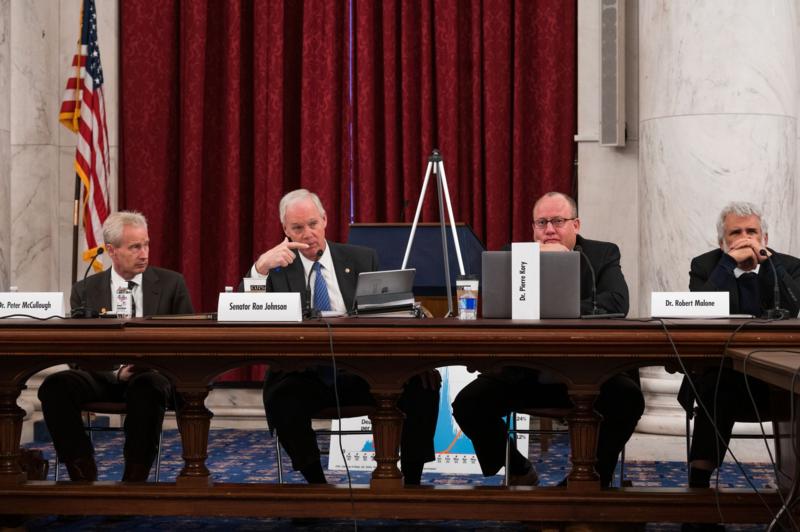Senator Ron Johnson boldly hosted a hearing on Covid policy called “Covid-19: A Second Opinion.” The room was filled with expert after expert specializing in infectious disease. Listen to what these experts had to say. One witness was Aaron Kheriaty, M.D., who was fired by the University of California at Irvine for not being vaccinated although his natural immunity provides greater protection against the virus. He said the argument for mandates collapses now that we have “clear evidence that Covid vaccines do not prevent infection or transmission of the virus.” Dr. Kheriaty called attention to the unprecedented 40% increase in all-cause mortality among working-age adults (18-64). The public health establishment has provided no explanation for that shocking rise in mortality, which is not directly related to Covid though it may be due to its vaccines and lockdowns.
Dr. Robert Malone, M.D., testified that the vaccines “do not prevent infection, viral replication, or transmission,” so why are they mandated? They cannot produce herd immunity, Dr. Malone said, even if every man, woman and child in America is vaccinated.
Dr. Jay Bhattacharya, M.D., reiterated the teaching of the Great Barrington Declaration, which he co-authored in October 2020, and testified against the lockdowns. Dr. Richard Urso, M.D., an expert on inflammation which is usually the first symptom of respiratory viruses including Covid, stressed the importance of taking medication in the first few days while the virus is replicating.
Dr. Peter McCullough, M.D., said “there are only two bad outcomes: hospitalization and death,” so the overriding need is for widely available early treatments that can be taken as soon as symptoms appear. Because Covid is “a mass casualty event,” Dr. McCullough said, we can’t afford to wait for randomized trials that are not forthcoming.
These and other testimonies at Sen. Johnson’s hearing make plain that the scientific community is far from a monolithic entity. Differing opinions are a dime a dozen, which should dispel the legitimacy of across-the-board mandates. If not even the scientists can agree on the best course of action, why should politicians be able to mandate a one-size-fits-all approach? These decisions belong to the people.






